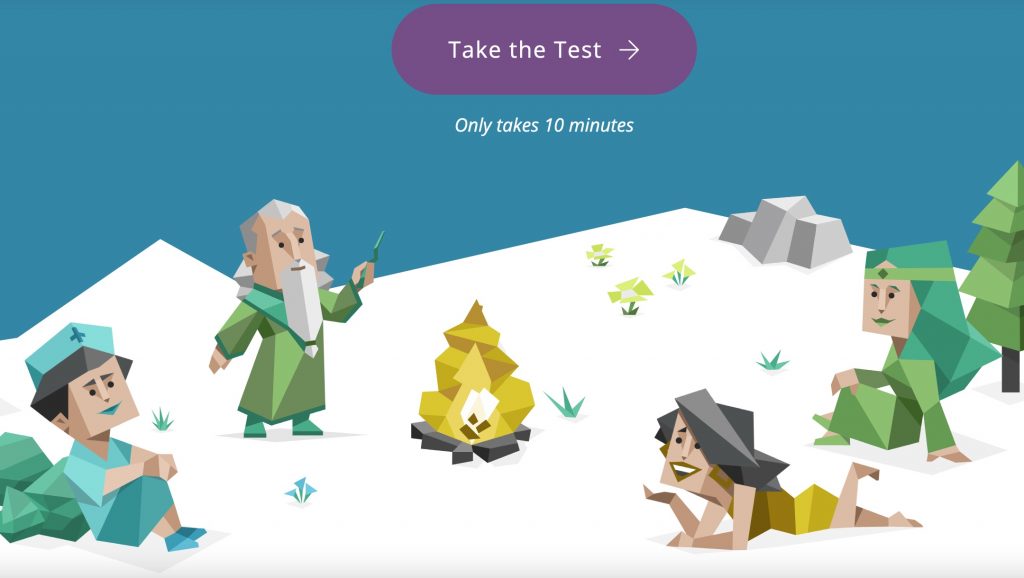- Level: B2, C1
- Questions embeded in the activity
- Language focus: adjectives, descriptors, personal traits
- Media: interactive quiz (reading)
How would you describe yourself? Tell us about you? Why hire you rather than someone else? Could you tell the class a few things about yourself? From job interviews to cocktail parties, this question can crop up in so many places. Yet whether I ask it or answer it, it always seems to create a moment dead air that can be a little awkward.
Being in the Spotlight
Even if it’s a pretty basic question, it does require that you expose yourself. And if you don’t want to expose yourself, well that kind of exposes you anyway. In other words, if you answer you have to say stuff, and if you don’t, well that says something too. That challenge basically boils down to the whole introvert, extrovert, ambivert dimension (see the lesson for more on that).
I Need More Word-Thingies
The second challenge in answering is of course vocabulary–which is what makes it a great ESL conversation lesson. This question will inevitably trigger the need for adjectives and descriptors. Once you have used up the garden variety, “I’m a hard-working person”, “I am perseverant” (because most language learners are), “I am sensitive”, even a native speaker may be at a loss for something to say. Or the opposite might happen, so many things start tumbling out of your mouth, you don’t know what to choose and when to stop.
A Little Preparation and Practice Never Hurt
I’m not saying we should prepare a one-size-fits-all speech that we learn by heart and recite anytime we are asked…that would be weird. But full disclosure, I myself have put some thought into this question and I do sometimes practice in my head…yep. I even have a first day of class version, a job interview version and a small talk version.
Hungry for Words
If you are hungry for words, one of my students recommended this great psycho-quiz called 16 Personalities. I use it in a job searching workshop to train students to answer the famed “tell me about yourself” interview question. The site is super well done, full of varied adjectives and descriptors and the questions are succinct, thought-provoking and fairly simple.
Warm-up
- Read through the personalities with your students
- Clear up any vocabulary issues
- Have them predict which personality correcponds to them
Le quiz: 16 Personalities

Discussion
- What personality are you?
- Say 5 to 6 descriptor words you don’t usually use, but that you really identify with
- Are there any aspects of the description that you disagree with?
- Can you give examples/anecdotes from your life that demonstrate this personality type?












